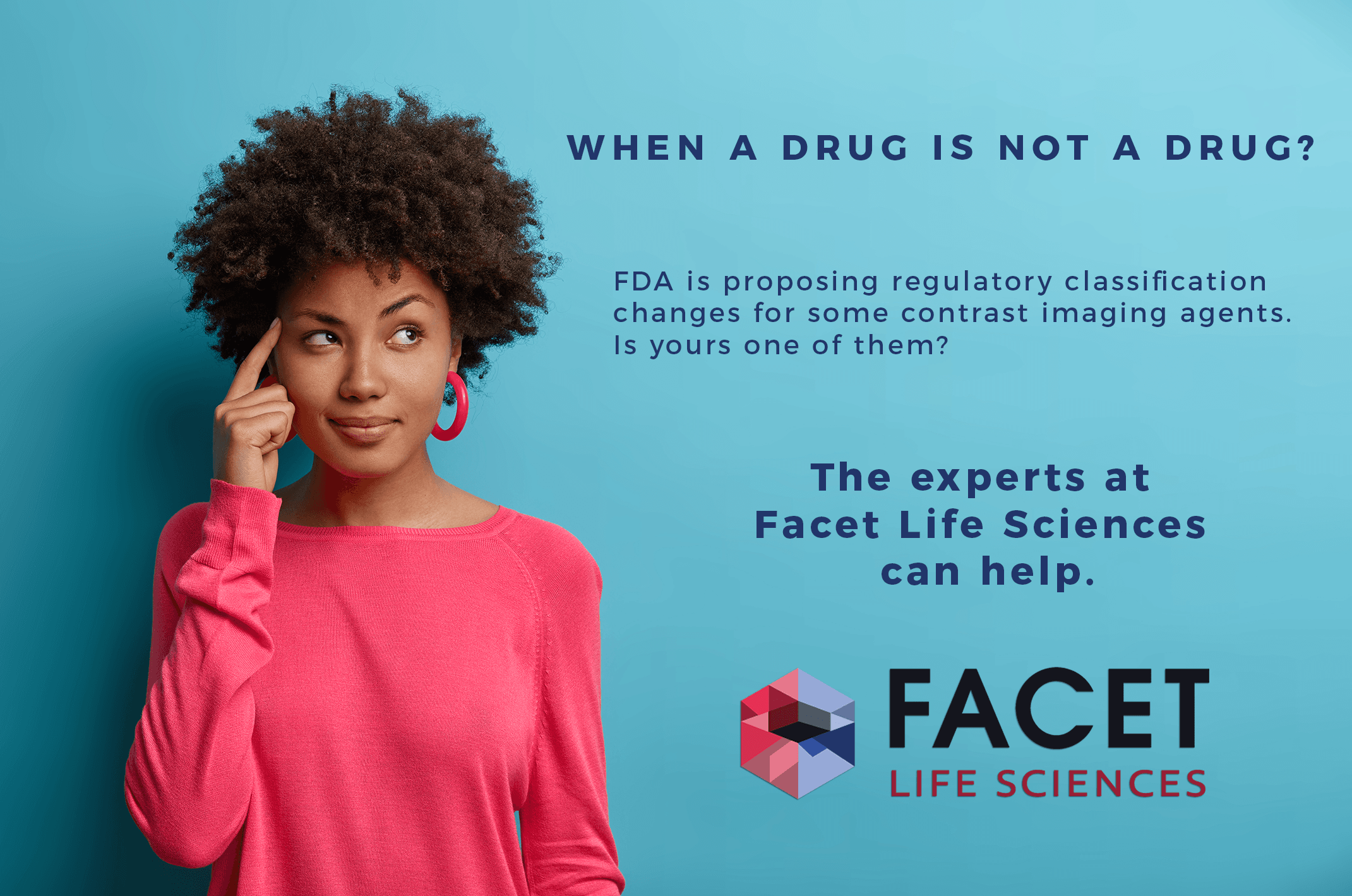
So, when is a drug not a drug?
To tackle this question, let’s first consider the US regulatory definitions of drugs and devices:
Per FD&C Act Section 201(g)(1), a drug is defined as:
…intended for use in the diagnosis, cure, mitigation, treatment, or prevention of disease in man or other animals.
…articles (other than food) intended to affect the structure or any function of the body of man or other animals.
Per FD&C Act Section 201(h), a device is:
An instrument, apparatus, implement, machine, contrivance, implant, in vitro reagent, or other similar or related article, including a component part, or accessory which is:
- recognized in the official National Formulary, or the United States Pharmacopoeia, or any supplement to them,
- intended for use in the diagnosis of disease or other conditions, or in the cure, mitigation, treatment, or prevention of disease, in man or other animals, or
- intended to affect the structure or any function of the body of man or other animals, and which does not achieve its primary intended purposes through chemical action within or on the body of man or other animals and
- which does not achieve its primary intended purposes through chemical action within or on the body of man or other animals and which is not dependent upon being metabolized for the achievement of its primary intended purposes. The term “device” does not include software functions excluded pursuant to section 520(o).
Now consider the recent example that has made big regulatory news:
Genus Medical’s barium sulfate. Barium sulfate meets the definition of drug because the product is intended for use in the diagnosis of disease. However, barium sulfate also meets the definition of a device because it does not achieve its primary intended purpose through either chemical or metabolic action. It works by coating the esophagus, stomach, or intestines which provides a contrast on X-rays with surrounding tissues.
FDA has interpreted the overlap in FD&C Act definitions as giving FDA discretion to regulate barium sulfate under either a drug or medical device regime. In fact, FDA has historically regulated all contrast imaging agents as drugs. Genus Medical chose to take the issue to court and on 16 April 2021, the US Court of Appeals for the District of Columbia Circuit made a summary judgement in favor of Genus Medical. The court concluded that FDA did not have the authority to choose to regulate barium sulfate as a drug when that product met the statutory definition of both a “drug” and “device”. Further, the court stated that,
“It would make little sense, then, for the Congress to have constructed such elaborate regulatory regimes—carefully calibrated to products’ relative risk levels—only for the FDA to possess the authority to upend the statutory scheme by reclassifying any device as a drug, no matter its relative risk level.”
Regulatory history was made on 9 August 2021 in a Federal Register notice (Docket No: FDA-2021-N-0843) announcing that in accordance with the Genus decision, FDA intends to regulate products that meet both drug and device definition as medical devices, except where the statute indicates that Congress intended a different classification.
What’s more, FDA also plans to review all FDA-approved imaging agents and potentially reclassify them as drugs or devices according to whether they achieve their primary intended purpose through chemical action or are dependent on being metabolized for the achievement of their primary intended purpose. This means that some currently approved imaging agents regulated as drugs will transition to be regulated as medical devices!
FDA is aware that there will be operational issues raised by these product transitions, although the full spectrum of implications from this landmark regulatory shift are yet wholly unknown. Sponsors desiring to respond to the docket are encouraged to do so by the deadline of 8 October 2021.
At some point in the future, FDA plans to publish in the Federal Register a list of approved imaging agents that they have tentatively determined should transition from drug to device status based on the Genus decision. Sponsor organizations finding their products on this tentative list will have the ability to respond to the docket before final classification determinations are made by FDA.

gET sOCIAL